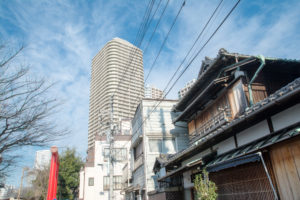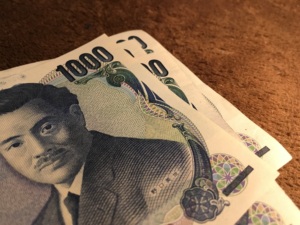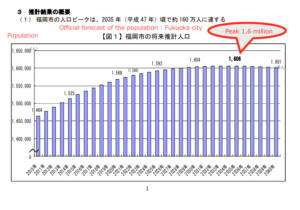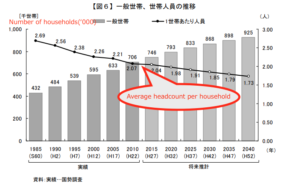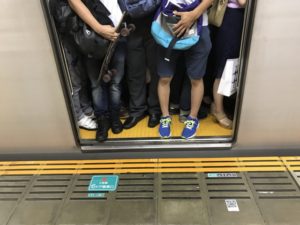
Successful investment strategy doesn’t simply mean buying and operating property.
Exit strategy is significantly important for the overall success.
You need to think about the exit strategy while you are acquiring property.
When you build the exit strategy, tax laws play the important role.
Today I am discussing the tax regulations when you sell your property outright.
Tax when you exit the property
The capital gain generated by selling your real estate is called transfer
income in Japan (It is almost same as capital gain tax in US)
To calculate the capital gains or losses, take the sales price then deduct selling expenses,
from the amount realized. Then deduct the original cost of property, plus expenses deemed to
have increased its value, less claims which have notionally decreased its value.
Expenses deemed to have increased its value are capital improvements
(roof replacement, central air conditioning installation, rewiring, etc.), assessments for local improvements
(water connections, sidewalks, roads), casualty losses (restoration of damaged property), legal fees.
Expenses deemed to have decreased its value are depreciation, casualty or theft loss deductions
and insurance reimbursement, certain credits, exclusions and deductions.
Monthly Archives: February 2018
Are there any rogue real estate agents in Japan ?
The real estate trade can be stressful in any country.
The financial commitment is substantially large, the regulations and laws are complex
and the market risk is high. Average Japanese people share the same concern.
Another problem is a large part of consumers’ assumption that all estate agents, letting agents and
landlords are all regulated. In Japan, all the agents who actually arrange the real estate transactions
(including rental contract) must be licensed.
Engaging in the marketing activity to lure the investors without holding a license is against the
Building Lots and Buildings Transaction Business Law. If your consultant or agent do not hold
the license, your contract is not completely protected by the said law.
It would be treated more under civil law. But if your broker is licensed, they are regulated by the government
and thus your contract is eligible for more protection under the conditions set forth by the said law.
Nonetheless, there are some rogue agents or consultants who are not licensed in Japan.
For example, such rogue agents put up advertisements for properties on which they have not been
instructed to promote in an attempt to get a cut of the fees.
Cost to hold your property : Understanding the tax angles when you buy the property in Japan Part-2
Previously I discussed the transaction taxes you have to pay at time of the acquisition of the property.
When you are holding the property (both land and building) in Japan, you need to pay two annual taxes whether you are making money out of the investment or not regardless of the purpose of the ownership.
One is fixed asset tax and second is city planning tax.
Land and houses and buildings on which the city planning tax is levied are the same as the objects of taxation for the fixed assets tax.
When the deal went through. the new owner’s first annual property-tax bill came to standard rate 1.7% of its assessed value.
Unlike London or New York, in Japan the same tax rate is applied to price band.
There are three Tokyos in Japan ?
For those who are not familiar with Tokyo, there is only one
Tokyo in Japan. I know.
But if you know more about Japan or have ever lived
in Tokyo, sometimes definition of ‘Tokyo’ could be confusing.
If you are just traveling in Japan, such definition does not matter.
You just keep enjoying good food and beautiful view.
However when it comes to the property investing in Japan or Tokyo.
the definition matters.
I want to give you the basic information about Tokyo today.
There are three definitions of Tokyo in Japan.
One is Tokyo special 23 wards with population 9. 2 million, second is
Tokyo Metropolitan
with 13.7 million population and third is greater Tokyo with massive 38 million people.
There are various definitions of the Greater Tokyo Area, each of
which tries to incorporate different aspects.
Read more
The latest news on the Japanese property market
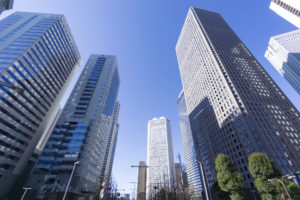
I am studying a few reports on the current Japanese property market.
I will share my detailed analysis on this blog soon.
Over all, the Japanese market is steady.
According to the Government’s announcement in July 2017,
the national average standard price of land
rose by 0.5% compared to the previous year and it increased
for the second consecutive year.
Land for stores and hotels rose as the number of visitors to
Japan increased and redevelopment became a driving force in urban areas.
Ginza, Tokyo cracks a mark of price of the bubble period (late 80’s)
for the first time in 26 years.
Land prices of Ginza 2 chome in Tokyo exceeded the price during the bubble period.
Is Japan really shrinking ?
Every day in the traditional medias and social medias, I encounter the news
discussing rapidly greying Japan and the shortage of labour with rather gloomy tone.
According to the official survey announced by the government in August 2017,
the total population (excluding foreign nationals) of Japan was 125 million,
decreased for eight consecutive years.
It decreased by 300,000 from the previous year, and was the highest drop since the survey
started in 1968. The number of registered foreign residents was 2.32 million.
In the meantime, the government also announced that Japan’s economy
expanded for the seventh straight quarter in July to September (2017),
the longest growth since 1994. So what is going on in Japan ?
Ironically the vigorous economy also highlights a chronic labour crunch
caused by the country’s ageing, shrinking population.
Japan now relies heavily on foreign labour, and experts have been
urging more public debate on immigration policy as Japan
continues to age and shrink.Read more
Is only Tokyo worth investing in Japan ?
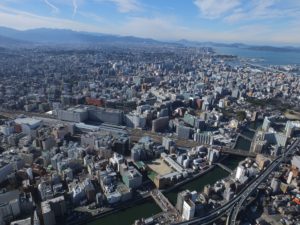
(Fukuoka city: Image was provided by Fukuoka city official site)
As we discussed in the previous post, we always recommend
foreign investors to start looking at Tokyo as the prime location to invest
in properties however, in addition to Tokyo, there are a few big local cities
where attractive investment opportunities exist.
Fukuoka city in Kyushu island is one of them.
Where is Fukuoka city ?
Fukuoka city is one of twelve government-designated cities
(namely large cities) such as Yokohama, Osaka, Nagoya
and has a population of 1.53 million people.(vs. 9.21 million in Tokyo 23 wards)
Here is the latest official forecast of its population and household
in the future announced by the Fukuoka city official.
(Please click the image to enlarge)
Its population will increase until 2035 and
notably the number of household (another important indicator for real estate
investing) will continue to grow until 2040 (or possibly beyond)
In Japanese real estate investing, the population matters so their
future is very bright.
Its gross population is ranked 5th in the government-designated cities.
In terms of population increase and population growth rate,
Fukuoka city tops in twelve cities.
From the global perspective, in ‘Livability ranking’ published by
MONOCLE magazine in London, Fukuoka city is ranked
14th in the world.Read more
How is the institutional investor looking upon the Japanese market ?
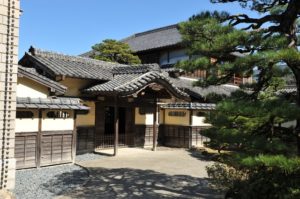
Many foreign investors may be hesitant to buy real estate in Japan where the declining birthrate
and the aging population are progressing. Compared with the emerging
Asian market such as Thailand and Vietnam,in terms of the macro view, you could be right.
However it is also true that real estate investment should be aimed at
generating stable earnings from a long-term perspective.
It is said that the stability and transparency of the Japanese market is
very attractive for foreign investors.
I mean the market growth is not everything.
Today we will discuss the strategy of a major Japanese real estate
corporation, Mitsui Fudonsan that can be a good measuring instrument to assess the real estate market in Japan.
Individual investors also can leverage such information and better understand
the market in Japan.
Where you should buy your house in Tokyo ?
Do you want to buy a house in Tokyo ? Which area do you want to buy your property ?
I believe understanding the location is a key to being successful
with buying a house (or apartment).
In Japanese big cities such as greater Tokyo, Osaka, Nagoya,
people do not commute by car but by train or subway.
They get on and off train every single day.
If the number of residents increases, the station nearby flourishes and
the vibrancy is born in the town.
On the other hand, if the number of station users decreases, we could see the
recent issues like “vacant house problem”.
Empty houses problems are even becoming serious in the area of Denenchofu station, Tokyu Toyoko Line,
which has been admired as said a prestigious residential area.
This is because the wealthy people who live in Denenchofu are moving into
high-rise apartments in the center of Tokyo.
When buying real estate in Tokyo, it is extremely important to check the trend of
passengers of the nearest station.
Unlike large cities in the US and Europe, there are few business people
who commute to work by car in Tokyo.
The convenience of commuting to work and the convenience of shopping are directly
linked to the value of real estate in Tokyo.
Read more
Acquisition cost: Understanding the tax angles when you buy the property in Japan Part-1
One of the principal rules of property investment is
that no property should cost more than it produces.
You obviously want to see the positive cash flow every month.
But from the tax management point of view, that is not the case.
When you are filing a tax return in March, you want to appear to be in red or break even.
The Japanese government in fact encourages investors to book the depreciation
that allows you post a deduction for the certain portion of the value of your property.
Tax code in Japan changes very frequently, almost every year.
I strongly advise that you should check with your broker or tax specialist
(tax accountant, CPA) before you take a significant action.
Tax is the biggest cost in the property investing.
Tax management therefore is a key for successful real estate investors.
Today I am going to discuss the taxes that investors need to pay when they
buy the real estate in Japan.
The following discussion is based on the tax laws which are applicable
as of end 2017.Read more

